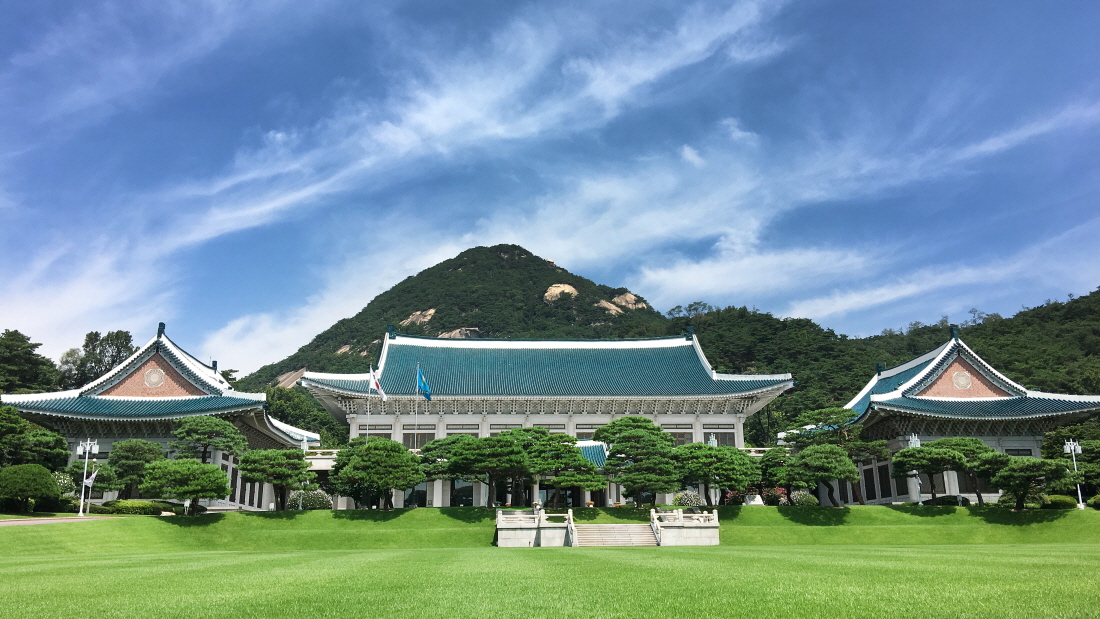이 웹사이트는 제19대 대통령 임기 종료에 따라 대통령기록관이 「대통령기록물 관리에 관한 법률」에 의해 이관받아 서비스하는 대통령기록물입니다. 자료의 열람만 가능하며 수정 · 추가 · 삭제는 불가능합니다.
다만, 「개인정보보호법」에 의하여 개인의 정보를 보호받기 원하시는 분은 관련 내용(요청자, 요청내용, 연락처, 글위치)을 대통령 웹기록물 담당자(044-211-2253)에게 요청해 주시면 신속히 검토하여 조치해 드리겠습니다. 감사합니다.
SPEECHES & REMARKS
BRIEFINGS

Hangeul Day today is especially significant as it falls in the year marking the 100th anniversary of the March First Independence Movement and the founding of the Provisional Republic of Korea Government. I ponder once more the compassion and love that King Sejong the Great showed for his people 573 years ago by creating Hangeul. I also contemplate the national spirit of our independence activists, who struggled to preserve Hangeul during the Japanese colonial period.
During Japanese colonial rule, saving Hangeul itself was a movement for independence. Ju Si-gyeong and other visionaries of the Korean Language Society studied Hangeul at the risk of torture and imprisonment. Finally in 1947, they compiled an unabridged dictionary of the Korean language. In its preface, they wrote that language defines human characteristics, gives a sense of fulfilment to the people and represents culture.
Only Hangeul can express the thoughts of Koreans in their entirety. Poems such as “Azaleas” by Kim So-wol and “One Night I Count the Stars” by Yoon Dong-ju, as well as Bang Jeong-hawn’s monthly magazine “Children” and the anti-Japanese daily “The Daehan Maeil Shinbo” were all written entirely in Hangeul. Thanks to the ability to write and read in Hangeul, we could never forget the rivers and mountains of our homeland.
Hangeul is easy to learn and a beautiful script. In 1945, the illiteracy rate in Korea stood as high as 78 percent, but it plummeted to 4.1 percent in 1958 in just 13 years. The rising literacy among the people served as a driving force behind our country’s simultaneous pursuit of industrialization and democratization. Hangeul, which many Korean language scholars risked their lives to preserve, has facilitated the rebuilding of our country.
Hangeul itself is the Republic of Korea, and Hangeul connects us with the world. No matter where our people settled, from Gando in China and the Maritime Province of Siberia to Central Asia and Hawaii, establishing schools to teach Hangeul was the first step. There is still great enthusiasm for learning Hangeul at the 180 King Sejong Institutes around the world. Hangeul has been behind the spread of Hallyu across borders. Whenever I met young people who sang Korean songs, I felt a sense of pride in Hangeul.
Our children engage with the world for the first time through such Korean words like ‘eomma’ (mama) and ‘appa’ (papa). Our history, the preciousness of what represents Korea and hope for the future are steeped in Hangeul. Ruminating on the compassion behind the birth of Hangeul, I join all the people in celebrating this 573rd Hangeul Day. I express my gratitude to everyone who worked to preserve and enrich our spoken and written language.



